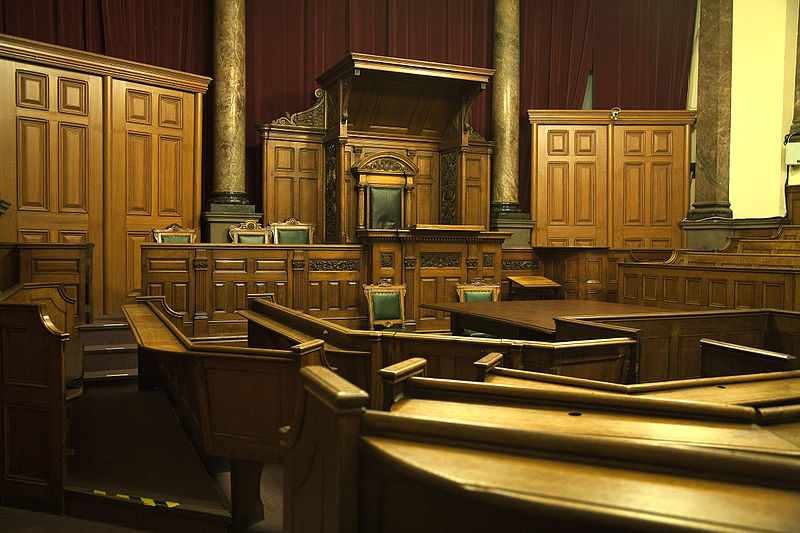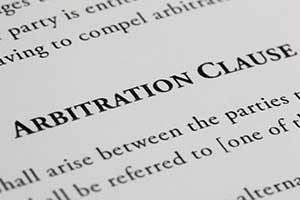In another case distinct from last week’s shipwreck blog post, salvage company Intersal, Inc. (“Intersal”) seeks to overturn a decision in favor of the North Carolina Department of Natural and Cultural Resources (the “NCDNCR”), the Secretary for the NCDNCR, the State of North Carolina, and the now-dissolved non-profit company Friends of Queen Anne’s Revenge (“FQAR”). Unlike the previous blog post, which addressed alleged copyright infringement, the litigants to the instant dispute are debating the enforceability of two contracts between the parties, whether the NCDNCR breached those contracts, and whether FQAR induced NCDNCR’s alleged breach. The Permits In 1994, the NCDNCR granted two permits to Intersal to search for…
-
-
Think You Can Represent Yourself in Business Court? Think Again.
While it is legally permissible to represent yourself in Business Court, it probably is not a good idea as one plaintiff learned the hard way. In a recent decision from the North Carolina Business Court, a plaintiff, James Gillespie, attempted to be a pro se litigant and wound up with his case dismissed and responsible for paying much of the defendants’ legal fees. Gillespie originally retained counsel for the purpose of suing the defendants. However, his attorneys, John and James Scarbrough, filed a Consent Motion to Withdraw as counsel. The court granted this motion requiring Gillespie to retain a new attorney within four weeks. He did not make the…
-
Playing by the (New) Rules in the North Carolina Business Court: Part 2
The North Carolina Business Court’s new Rules went into effect January 1, 2017 and apply to every civil action designated as a mandatory complex business case or assigned to a Business Court judge, regardless of whether it was filed prior to the Rules’ effective date. They are meant to supplement, rather than supplant, the Rules of Civil Procedure and General Rules of Practice, but if there is a conflict with local rules or standing orders from the county of venue, the Business Court’s Rules will govern. Part 1 of this topic addressed the changes in Notices of Designation, filing, electronic filing technology problems, motions practice, and emergency motions. For…
-
Counterclaims: When to Designate a Case to the North Carolina Business Court
The North Carolina Business Court (“Business Court”) is a specialized forum designed to adjudicate cases involving complex and significant issues of corporate governance and commercial law. If a dispute involves one of the subject matters enumerated in North Carolina General Statute § 74-45.4, then the case shall be designated and assigned to the Business Court. Cases may also qualify for discretionary assignments to the Business Court under Rule 2.1 of the General Rules of Practice for Superior and District Courts if it does not qualify for mandatory designation but involves certain other factors. Mandatory designations are governed by…
-
North Carolina Business Court Enforces Arbitration Agreement Prohibiting Discovery, Live Testimony, and a Full Hearing
In a January 2016 (unpublished) order, the North Carolina Business Court (NCBC) enforced a contract provision compelling arbitration and prohibiting any discovery prior to the arbitration.[1] In Taggart v. Physicians Pharmacy Alliance, Inc., James Taggart sold his business, Physicians Pharmacy Alliance, Inc. (“PPA”), in a stock purchase agreement. The agreement contains a provision mandating arbitration as to “any claim, controversy, or other matter in question based upon, arising out of, or otherwise in respect of this Agreement.” The agreement further specifies: “[i]t is the desire and intent of the Parties that such arbitration be held without any discovery,…
-
North Carolina Business Court: Employment Agreements Automatically Terminate Upon the Sale of a Company
A recent decision by the North Carolina Business Court held that an employment agreement automatically terminates upon the asset sale of one company to another, despite continued employment with the purchasing company.[1] In 2001, Andrew Lund executed an employment agreement with his then-employer, Southern Staircases of North Carolina, Inc. The agreement contained several post-employment restrictions regarding disclosing confidential information and soliciting current and future customers. The agreement also contained a duty of loyalty provision to “devote his entire working time, attention, and energies to the business of the Company and . . . [to] not be engaged in any other business…
-
North Carolina Business Court Reaffirms Breadth of Arbitrators’ Authority in Recent Decision
A recent decision by the North Carolina Business Court (NCBC) re-affirmed long standing precedent that an arbitration award is customarily final and binding, even if it includes an error of fact or law.[1] In the most recent case, Killian/Simonini, LLC argued the arbitrator exceeded his authority by impermissibly including consequential and punitive damages in his award, which were not provided for in the arbitration clause of their operating agreement. Killian/Simonini further argued the North Carolina Limited Liability Act controls and limits the remedy for failure to make capital contribution payments to a LLC to the actual amount of the payments.[2] Therefore, they contended the…
-
North Carolina Business Court Weights in on Attorneys’ Fees in Class Action Settlements
Recent decisions by the North Carolina Court of Appeals and North Carolina Business Court (NCBC) shed light on a previously unsettled question of law: when can a North Carolina trial court award attorney’s fees as part of a class-action settlement in the absence of additional statutory authority? Long-standing precedent is that a court can award attorneys’ fees to a prevailing party when statutorily authorized to do so.[1] This practice is known as the “American Rule.” The intended purpose of the American Rule is to encourage the conservation of judicial resources by promoting settlement and discouraging unnecessarily prolonged litigation.[2] Regarding…
-
North Carolina Business Court Awards Rule 11 Sanctions for Second Time this Fall
The North Carolina Business Court recently entered Rule 11 sanctions against attorneys who relied on inaccurate information from their clients in preparing and filing lawsuits. The decision comes just two months after the NCBC awarded Rule 11 sanctions in a case with similar facts (which we summarized Here). In the most recent decision, the client, John Mauney, represented to his attorneys that he was a manager and member of NC Bioremediation, LLC, and therefore had authority to file a lawsuit on the company’s behalf.[1] In fact, Mauney was not, nor had he ever been, a member or manager…








